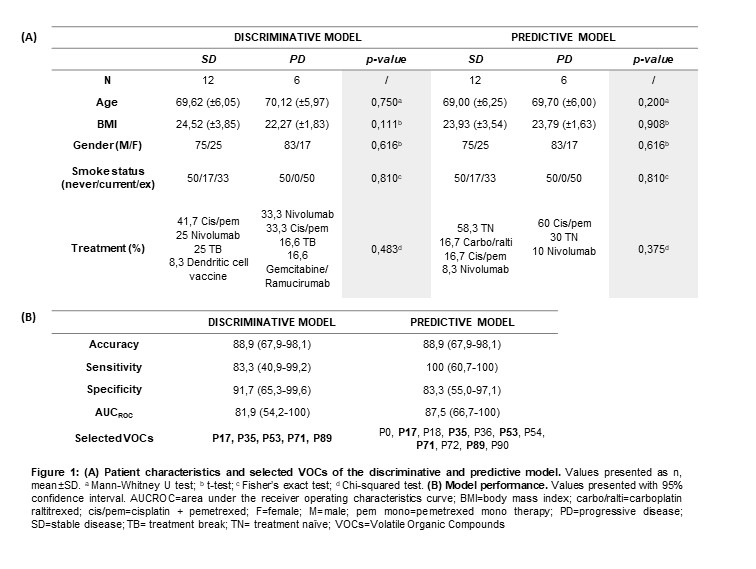Abstract
Background
Malignant pleural mesothelioma (MPM) has a poor prognosis, and treatment options have limited effects on survival. However, personalised treatment could benefit patient?s outcome, but predictive markers are lacking. Volatile organic compounds (VOCs) in exhaled breath recently emerged as non-invasive markers (Janssens et al, 2022, Cancers).
Objectives
Investigate if exhaled breath analysis differentiates treatment responders to non-responders (discriminative setup) and, if so, if this outcome can be predicted earlier on (predictive setup) with VOCs as predictive biomarkers.
Methods
13 MPM patients were included, and their CT scans were scored stable (SD) or progressive (PD) based on mRECIST criteria. Breath and background samples were collected via multi-capillary column-ion mobility spectrometry, and VOCs were characterised. After background correction, lasso regression was performed, followed by leave-one out cross-validation. A discriminative model was created to investigate if VOCs can differentiate between SD vs PD. A predictive model was trained to predict outcome based on the associated breath sample from the previous study visit.
Results
Conclusion
VOCs in exhaled breath allow to detect and predict treatment outcome in MPM patients. The VOC profiles need to be determined for each treatment in order to select patients who will benefit a specific treatment and should be validated in a larger population.